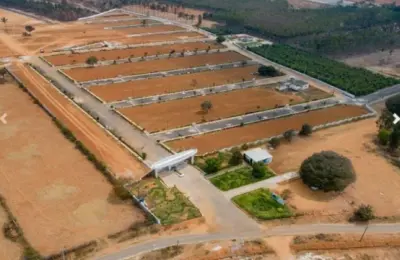Take Advantage of Limited-Time Offers on Luxury Homes with Stunning Features! +917676870876 | onecityproperty.com@gmail.com
Discover Your Dream Home with OneCity Property! +917676870876 | onecityproperty.com@gmail.com
Explore Our Exciting New Property Listings Now Available in Prime Locations! +917676870876 | onecityproperty.com@gmail.com
Join Us for Exclusive Open House Events This Weekend and Find Your Perfect Home! +917676870876 | onecityproperty.com@gmail.com
Obtaining a No Objection Certificate (NOC) for Property Development in Karnataka

How to Obtain a No Objection Certificate (NOC) in Karnataka
A No Objection Certificate (NOC) is a critical document required for various stages of property development in Karnataka. It certifies that there are no objections from relevant authorities for a proposed project, ensuring the development complies with government regulations. An NOC is mandatory for ensuring that property projects meet legal, safety, and environmental standards before construction begins. This document helps avoid future legal disputes and delays in the project.
Here's a comprehensive guide on how to obtain an NOC for property development in Karnataka:
What is a No Objection Certificate (NOC)?
A NOC is an official document issued by different government bodies stating that they have no objections to the development plans. This certification is necessary to comply with local land use, building codes, and environmental protection laws.Multiple NOCs may be required depending on the nature and location of the project. Some familiar authorities issuing NOCs include:
Municipal authorities (for building plan approvals)
1. Karnataka State Pollution Control Board (KSPCB)
2. Fire Department
3. Revenue Department
4. Local water and sewage authorities
If you want to know more about property buying selling or investing call now: 76768 70876
Email: onecityproperty.com@gmail.com
Address : 1st floor, Parvathamma Complex, LIG, 6th Main Rd, 1st Stage, Stage 1, KHB Colony, Basaveshwar Nagar, Bengaluru, Karnataka 560079
Critical Types of NOCs for Property Development

Below are the main NOCs required for property development in Karnataka
1. Land Use and Zoning NOC
Issued by the Bangalore Development Authority (BDA) or the local municipal body, this NOC confirms that the proposed project complies with zoning regulations and that the land is permitted for the intended use (residential, commercial, etc.).
2. Fire Safety NOC
This NOC, issued by the Karnataka State Fire and Emergency Services Department, is required for all commercial and residential buildings. It confirms that the building meets fire safety guidelines, including fire exits, extinguishers, and alarms.
3. Environmental Clearance NOC
Issued by the Karnataka State Pollution Control Board (KSPCB), this NOC is essential for projects impacting the environment, such as large housing projects, commercial spaces, and industrial developments. The NOC ensures adherence to environmental protection norms, covering air, water, and noise pollution controls.
4. Water Supply and Sewage NOC
This NOC is provided by the Bangalore Water Supply and Sewerage Board (BWSSB) or the relevant local authority. It confirms that the project can access clean water and adequate sewage management facilities.
5. Height Clearance NOC from Airports Authority of India (AAI)
If the property is located near an airport or within restricted airspace, an NOC from the Airports Authority of India must ensure the building does not exceed the height limits set for aviation safety.
6. Heritage NOC
If the development is near a heritage or historical site, an NOC from the Department of Archaeology or Heritage Conservation authorities must ensure that the project will not impact protected areas or monuments.
7. Traffic Clearance NOC
A NOC from the local traffic department must address concerns like parking, road widening, and traffic flow around the project for large-scale developments affecting local traffic.
8. NOC from the Revenue Department
The Revenue Department verifies land ownership and that there are no disputes or encroachments on the property. This NOC ensures that the land is free from any legal complications.
9. Forest Department NOC
Suppose the property is located near a forest or reserved area. In that case, this NOC ensures that the development complies with the Karnataka Forest Department's guidelines and does not violate forest conservation laws.
Steps to Obtain a NOC for Property Development in Karnataka

1. Identify the Required NOCs
Consult with a legal expert or a property consultant to identify the NOCs required based on the project's nature, scale, and location. The number will vary depending on whether the property is residential, commercial, or industrial and the specific requirements of local authorities.
2. Prepare Necessary Documents
Gather all necessary documents for each NOC application, including land title deeds, building plans, environmental impact assessments, fire safety plans, and project details.
Ensure the documentation is accurate and complete, as incomplete submissions can lead to delays.
3. Submit Applications to Respective Authorities
Submit applications online or offline, depending on the respective authority's process. Ensure you submit applications to all required authorities, such as the local municipality, BWSSB, fire department, etc.
4. Follow Up
Stay in constant touch with the concerned departments to track the progress of your application. Authorities may sometimes request additional information or clarification, which should be provided promptly.
5. Inspections and Verifications
Many NOCs require site inspections by the issuing authority. For example, the Fire Department may inspect to ensure compliance with fire safety measures, and the Pollution Control Board may verify environmental safeguards. Be prepared to accommodate these inspections.
6. Obtain the NOCs
Once the concerned departments are satisfied that the project complies with their requirements, they will issue the NOCs. These certificates are usually issued physically, but some may also be available online.
7. Submission for Final Approvals
After obtaining all necessary NOCs, the documents must be submitted to the local planning authority or the town planning department for final project approval and commencement of construction.
Documents Required for NOC Applications

The documents required may vary depending on the type of NOC being sought, but commonly required documents include:
- Land ownership documents (sale deed, mutation records)
- Detailed building plans and blueprints
- Environmental impact assessment (if applicable)
- Fire safety plan
- Layout approval from the local authority
- Land use or zoning clearance documents
- Proof of payment for various fees
If you want to know more about property buying selling or investing call now: 76768 70876
Email: onecityproperty.com@gmail.com
Address : 1st floor, Parvathamma Complex, LIG, 6th Main Rd, 1st Stage, Stage 1, KHB Colony, Basaveshwar Nagar, Bengaluru, Karnataka 560079
Challenges in Obtaining NOCs
1.Multiple Departments: Property developers often need to deal with various departments for different NOCs, making the process complex and time-consuming.
2. Delays in Approval :Due to bureaucratic processes, delays in site inspections or approvals can hold up the project timeline.
3. Inconsistent Regulations: Local laws and requirements may vary between urban and rural areas, requiring developers to stay updated on the latest regulations.
Conclusion
Obtaining a No Objection Certificate (NOC) is a vital part of the property development process in Karnataka. Developers can avoid legal issues, environmental violations, and potential project delays by ensuring that all necessary approvals are in place. While the process can be complex due to the number of authorities involved, careful planning, timely documentation, and regular follow-ups can help developers navigate the system smoothly.
News insight
 30/10/2025
30/10/2025Commercial Property for Sale in Bangalore (2025): Prices, Best Locations, Yields & Buying Guide
Explore commercial property for sale in Bangalore: price bands, top micro-markets, rental yields, ta...
 23/04/2025
23/04/2025Best Localities to Buy Plots in Bangalore for Investment 2025
Discover the top areas in Bangalore for plot investments in 2025. From Devanahalli to Sarjapur Road,...
 17/02/2025
17/02/2025What is a Tripartite Agreement
Learn about Tripartite Agreements, their format, types, uses, and importance in real estate, finance...






